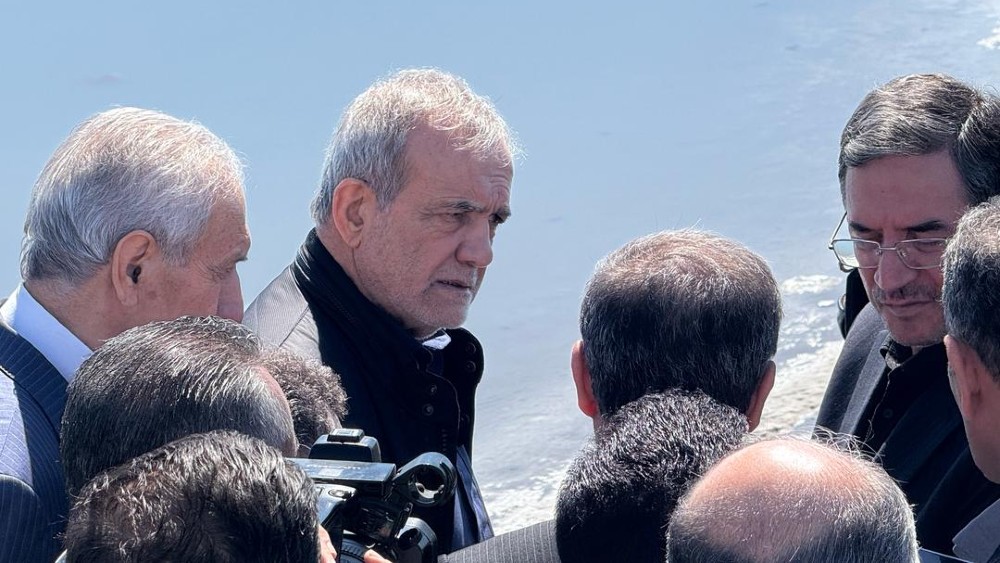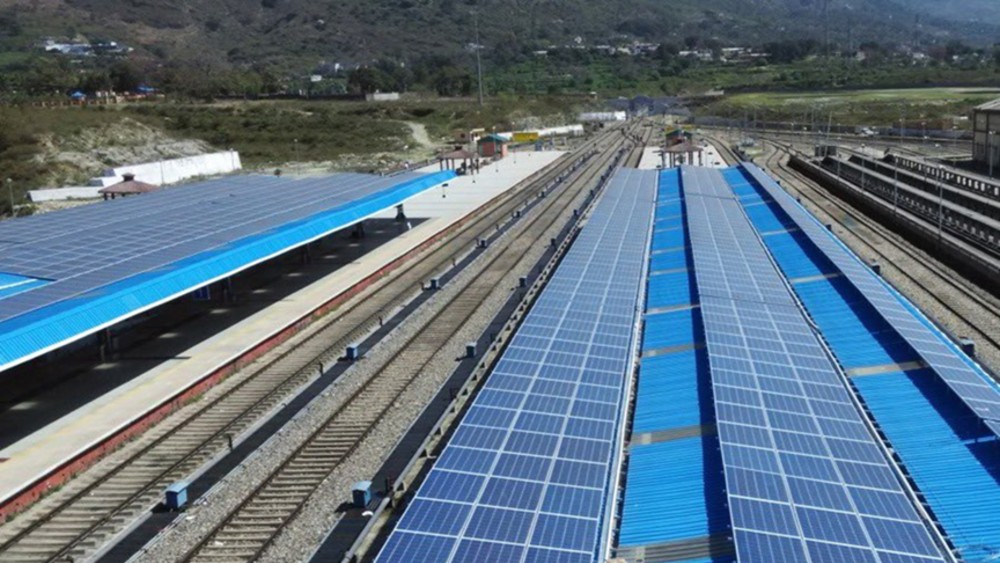ISLAMABAD: Global internet freedom has declined for the fifteenth consecutive year as countries increasingly impose restrictions in an effort to manipulate the flow of information and online expression.
Freedom House, a Washington DC organization monitoring democracy and threats to freedom worldwide, released its latest “Freedom on the Net 2025: An Uncertain Future for the Global Internet” report on Thursday, classifying countries as Free, Partly Free, or Not Free based on a 100-point scale that evaluates obstacles to access, limits on online content, and violations of user rights, including surveillance, censorship, arrests, and restrictions on digital expression.
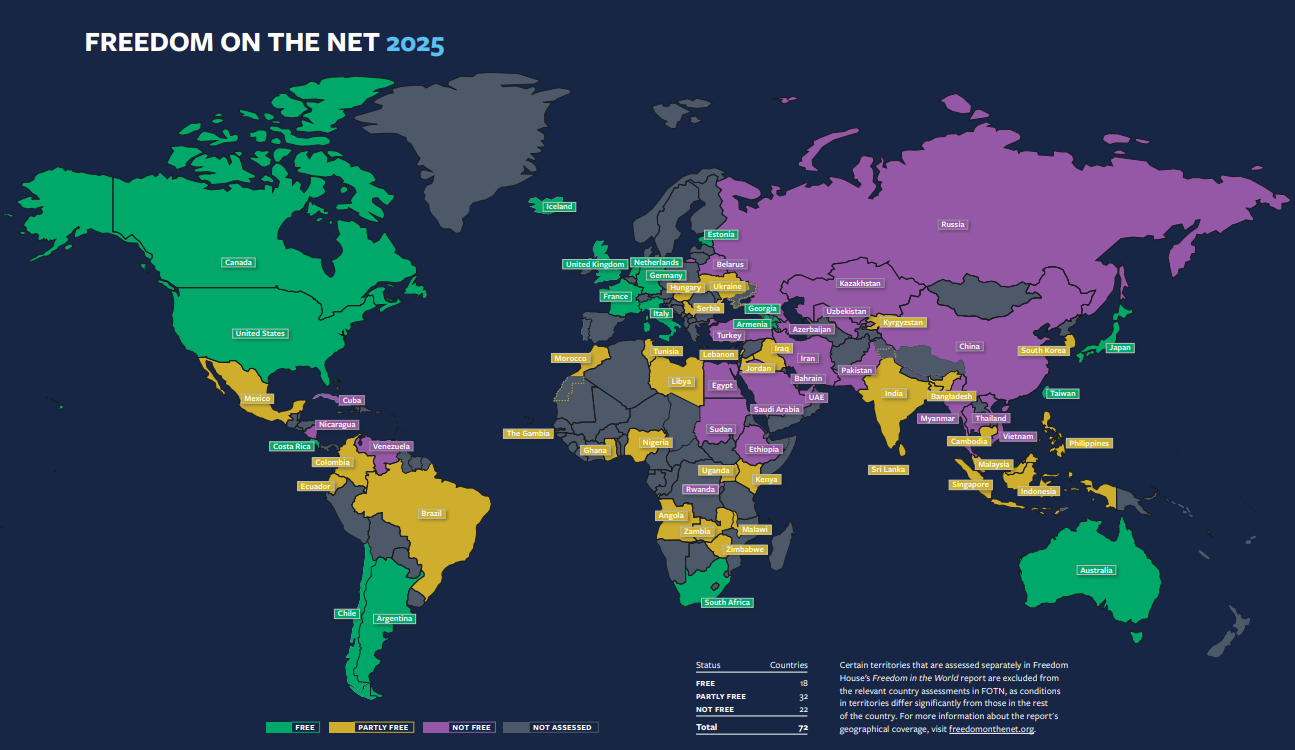 This infographic is from the Freedom on the Net 2025 report, as seen on www.freedomhouse.org.
This infographic is from the Freedom on the Net 2025 report, as seen on www.freedomhouse.org.
Of the 72 countries assessed in Freedom on the Net 2025, conditions deteriorated in 28 and improved in 17, with South Asia reflecting both spectrums.
In India, internet freedom has continued to deteriorate, with the country scoring 51 out of 100 in 2025, remaining classified as “Partly Free.” The Indian government has increasingly relied on internet shutdowns during political unrest and regional conflicts, with Freedom House noting that “authorities in the state of Manipur imposed a weeks-long internet shutdown during protests in November 2024.”
Pakistan scored 27 out of 100. The government has recognized that protests and unrest can disrupt connectivity and have an impact on internet access and digital rights.
Bangladesh, however, saw the most improvement this year following a student-led uprising in August 2024, which resulted in the ousting of its former leadership. The interim administration implemented reforms that eased limitations on online expression and promised increased digital transparency. Despite these advances, the report acknowledges that Bangladesh continues to face problems, including frequent shutdowns and arrests under expansive cybercrime regulations.
Across the region, Freedom House identified a larger trend: governments are increasingly using digital tools to control narratives, manage opposition, and impact election outcomes. This is consistent with the report's global trend, which shows that governmental responses to protests and elections have contributed to some of the greatest decreases in internet freedom since the index's inception fifteen years ago.
These tactics aren't as overt as blatant censorship but have a significant impact on public discourse.
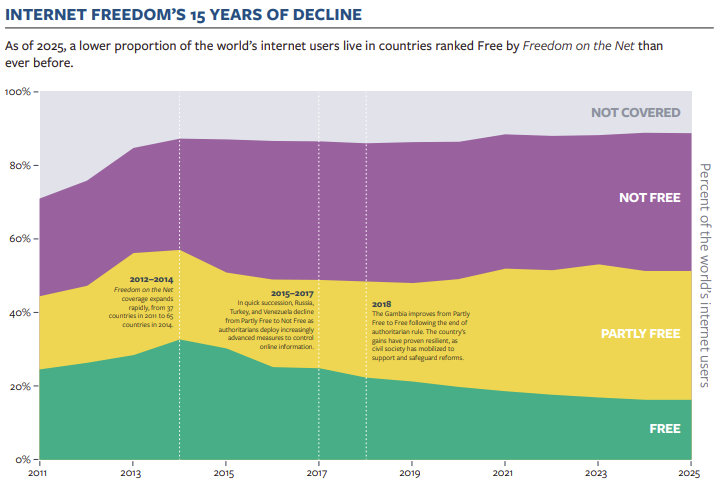 This infographic is from the Freedom on the Net 2025 report, as seen on www.freedomhouse.org.
This infographic is from the Freedom on the Net 2025 report, as seen on www.freedomhouse.org.
What is the future of Internet Freedom?
The report emphasizes the importance of legal, technical, and institutional improvements in defending internet freedom.
The immediate future will depend on how governments deploy incentives for and controls over the next wave of technological innovation, Freedom House says. Governments are recommended to limit shutdowns, censorship, and surveillance while also establishing independent oversight mechanisms to examine content-blocking policies.
Legal safeguards need to protect journalists, activists, and everyday users against arrest or harassment for free speech on the internet.
.jpg)
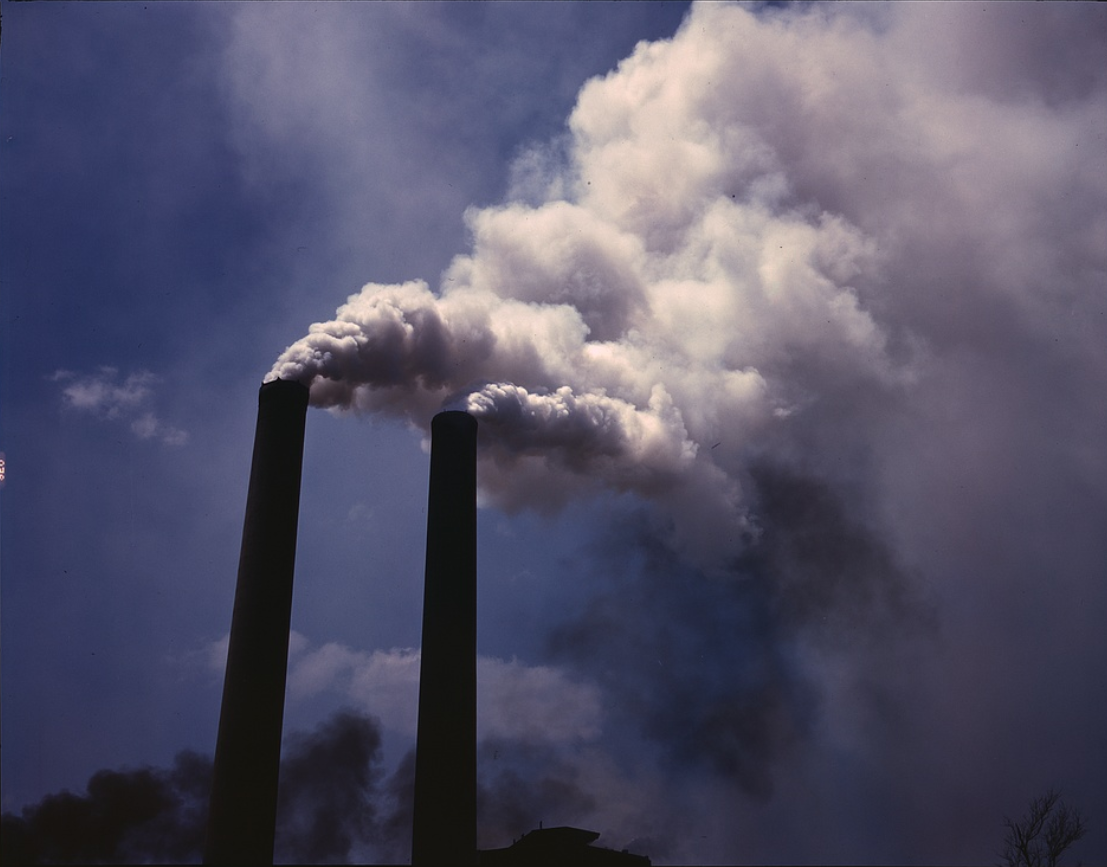
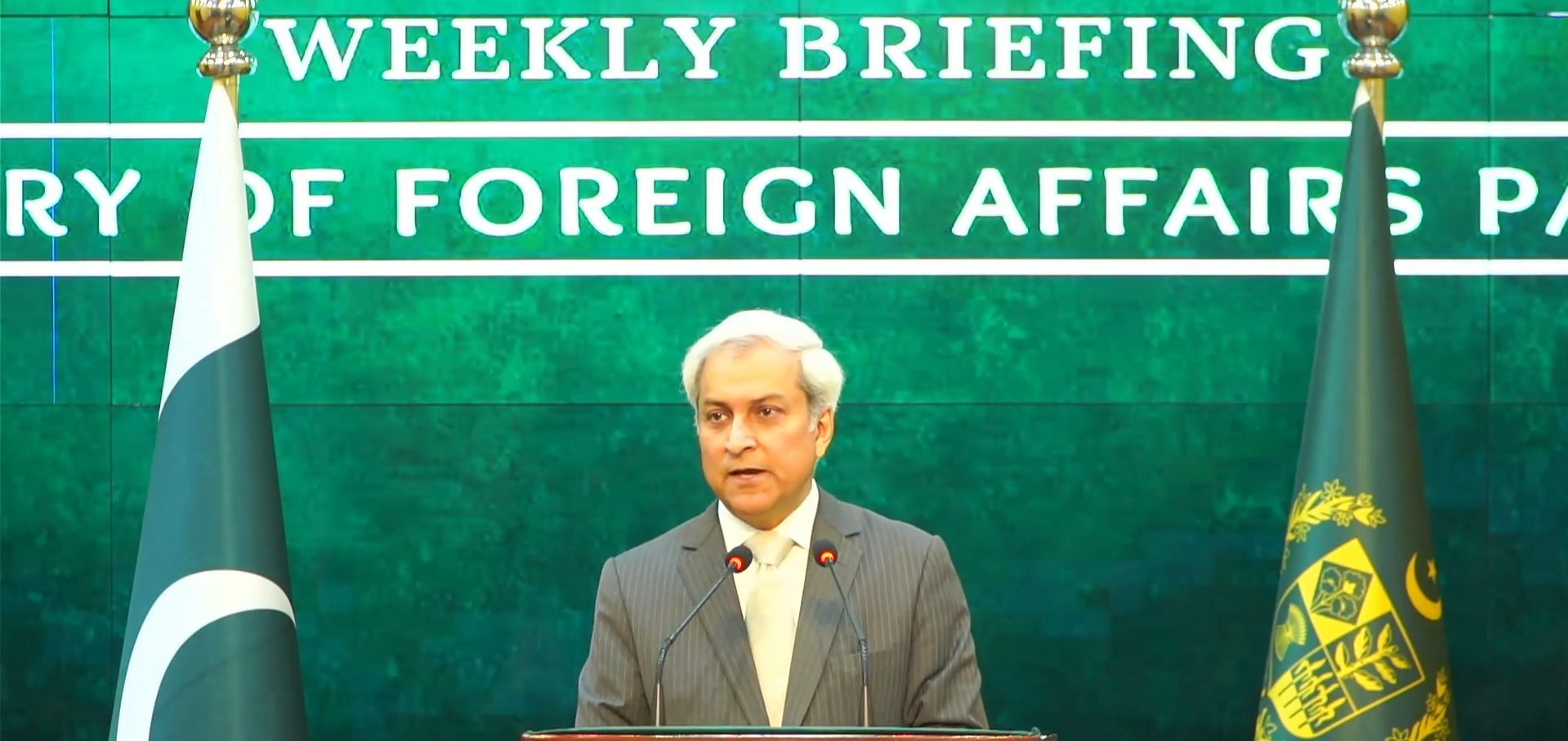
.jpg)
